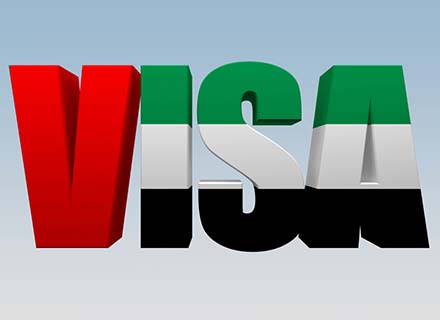According to new research published by the human resources platform Deel, the United Arab Emirates is the top destination for those seeking to relocate abroad for employment.
According to the Deel Global Hiring Report, which is based on data from 300,000 contracts worldwide, the United Arab Emirates has surpassed over 150 nations in terms of popularity as the destination for foreign talent looking for work permits.
According to research published by Deel in January 2024, job seekers in the financial services, IT and services, computer software, management consulting, marketing, and advertising sectors are especially interested in the UAE.
The most sought-after positions in the nation are those of strategy director, software engineer, content manager, influencer marketing manager, and management consultant.
Recruiters’ top choices were not only the emirates but other nations like Turkey, India, the United Kingdom, and France.
According to Dell, the study’s findings highlight the UAE’s dedication to developing a vibrant and varied multinational workforce.
Tarek Salam, Head of Expansion at Deel, said, “The country’s commitment to talent, innovation, and a dynamic business environment is clearly resonating with international professionals and solidifying its position as a top hiring destination.”
The UAE’s “greatest asset,” according to Salam, is its diversified and multicultural workforce.
He also added that by drawing and keeping international workers, the nation is setting itself up for sustained economic success.
The study took into account the opinions of 20,000 customers and covered 160 countries in total.
Amid the talks of UAE-based companies being unable to procure employees of certain South Asian nationalities, visa experts and agents have categorically refuted ‘claims’ of the Gulf nation stopping issuing visas to Indians, Pakistanis and Bangladeshis in the country.
As per a Khaleej Times report, when a Dubai-based business service centre reached out to the Ministry of Human Resources and Emiratisation (MoHRE), the venture was told that the establishments must diversify nationalities while hiring.
“They must ensure that the first 20% of available quotas in the establishments are allocated to different nationalities. It is important to note that this procedure is linked to the demographic diversity of the establishments and is not associated with a specific nationality,” the report stated further.
Companies were also told by the UAE government to hire employees of another nationality if they received the message to achieve diversity.
As Khaleej Times reached out to the MoHRE, a ministry representative confirmed the “first 20% rule”, while stating, “For example, if a company applies for a visa for a particular person and it is rejected on the basis of diversification, then they must recruit someone of a different nationality for the same role to fulfil diversity requirements. It is not applicable to any particular nationality and is the same for everyone across the board.”
The representative also added that once the 20% diversity was achieved, companies were free to hire any nationality.
Dismissing claims on social media that the authorities have stopped issuing visas to Indians, Firosekhan, managing director of Dubai-based Profound Business Service, told the Khaleej Times, “I got visa for an Indian applicant at a company that has a diverse workforce. However, when I tried to get one for an applicant at an establishment with an overwhelming majority of Indian employees, I got the ‘achieve diversity’ message.”
An executive of another business centre also confirmed the UAE government’s goal of ensuring workplace diversity.
Abdul Gafoor, general manager of Al Mas Businessmen Service, “Many companies in the UAE have a majority of Indians, Pakistanis and Bangladeshis as employees. So if a company already has a large number of employees from these three nationalities, they are not able to apply for new visas for people from the same countries.”
Till January 2024, the rule has not been made applicable to freezones.
“None of the companies operating out of free zones have faced issues with getting work permits issued. So far, it looks like something that is only applicable to mainland companies,” Gafoor remarked further.
In 2022, the MoHRE announced a three-tier classification system, under which achieving diversity while hiring was put forward as one of the criteria for businesses to get a ‘higher classification’, which, in turn, would make the ventures eligible for discounts on work permits and transfer fees.
The policy of diversity aims to make the social and cultural diversity of the UAE “an integral part of the core values of the companies in the private sector. This will be done by diversifying the cultural backgrounds of their employees and offering equal employment opportunities while empowering UAE citizens as per the applicable percentages of Emiratisation.”

